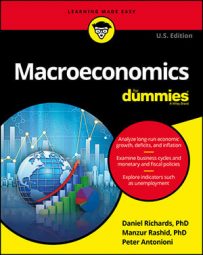About the book authors:
Daniel Richards, PhD, is a professor of economics at Tufts University. He received his PhD from Yale University.
Manzur Rashid, PhD, has taught economics at University College London and Cambridge University.
Peter Antonioni is a senior teaching fellow at University College London.
Daniel Richards, PhD, is a professor of economics at Tufts University. He received his PhD from Yale University.
Manzur Rashid, PhD, has taught economics at University College London and Cambridge University.
Peter Antonioni is a senior teaching fellow at University College London.
Daniel Richards, PhD, is a professor of economics at Tufts University. He received his PhD from Yale University.
Manzur Rashid, PhD, has taught economics at University College London and Cambridge University.
Peter Antonioni is a senior teaching fellow at University College London.

